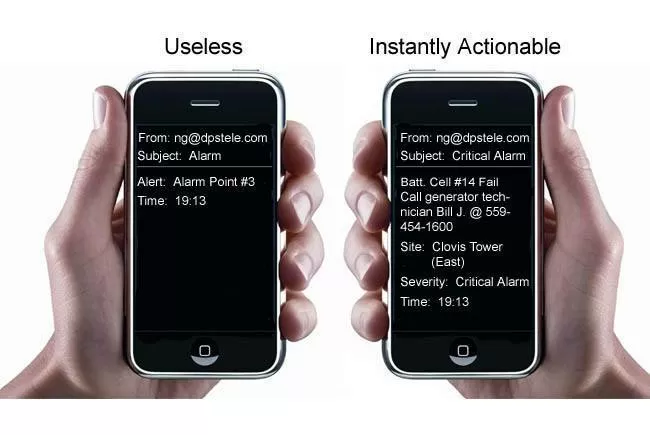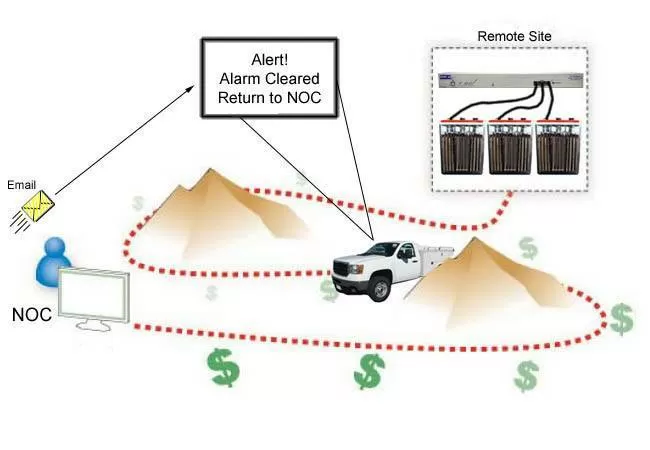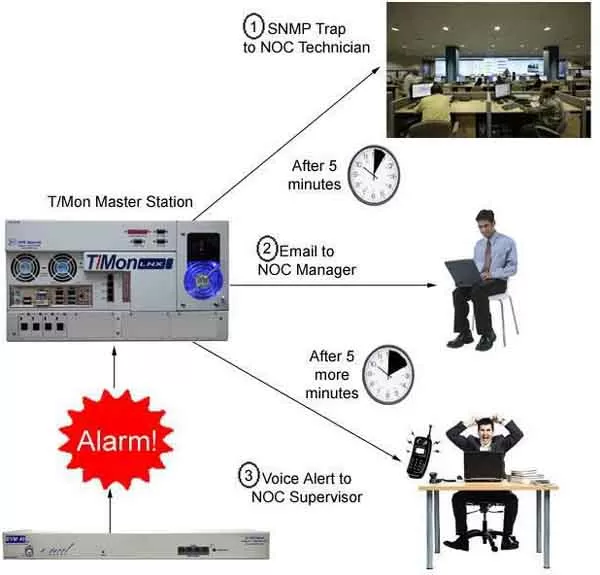Check out our White Paper Series!
A complete library of helpful advice and survival guides for every aspect of system monitoring and control.
1-800-693-0351
Have a specific question? Ask our team of expert engineers and get a specific answer!
Sign up for the next DPS Factory Training!

Whether you're new to our equipment or you've used it for years, DPS factory training is the best way to get more from your monitoring.
Reserve Your Seat TodayRelated Topics:
Battery Monitoring System
Receiving alerts from your battery monitor is a critical and must-have feature of any good battery monitoring system. If you plan on avoiding many preventable outages, you'll want to make sure you're the first one to know the instant there's a problem.
That's why flexible alerts can make a tremendous difference. When you can receive an alert 24 hours a day, 7 days a week, no matter where you are, you'll always be prepared.

How meaningful alerts can make the difference
With a limited battery monitoring system, you'll likely receive vague alerts that are useless. You won't know any details about the problem - what's the issue, where's the problem, how serious, etc. When you're responding to an emergency situation, you'll need the most detail you can get, and vague alerts will only leave you guessing.
Detailed and meaningful battery alerts are the key to improving your network reliability and reducing your costs. Instead of a damaged cell or a discharged string unexpectedly causing an outage, you'll instantly know when something isn't right. This gives you the upper hand to respond to a problem before it can disrupt your network.
What makes a great battery alert?
Since battery alerts are such a critical part of a good battery monitoring system, it's important to know what specifically makes a good alert. Here are some key features of a meaningful alert:
An alert is worthless if it can't describe the issue to you. Your alerts should include a meaningful amount of detail, that way you're adequately prepared to respond to an emergency.
Your battery alerts should include details like alarm severity, meaningful description, alarm location, date of occurrence, and time. This degree of detail allows you to quickly respond to emergencies.
Receiving an alert when an alarm clears can be a valuable tool - especially if you have batteries at distant remote sites. If you're on your way to a remote site and an alarm clears or is resolved, you'll receive a notification. This way, you can turn around and return to your NOC. Imagine how many man-hours and resources you could save by preventing costly truck rolls.

When there's an issue with your batteries, you absolutely need to make sure there's a technician available to respond. By having a battery monitoring system with escalating notifications, you'll have a list of people to be notified if an alarm isn't acknowledged. If the first person notified can't respond, then the next person on the list will be notified (and so on down the list). These escalation lists can protect you against a single person missing an alarm for hours at a time.

A good battery monitoring system will also be capable of alerting you 24/7. Even if you have a 7x24 NOC, versatile alerts outside of the office/NOC provides you with true flexibility. Look for a device that can give you alerts via multiple methods - email, SNMP traps to a master, pages, text messages, etc.
Don't let inferior alerts bring your network down. The BVM 48 G2 is a device built to send great notifications. You'll have the flexibility of receiving alerts no matter where you are 24 hours a day, 7 days a week. Your alarms will also feature rich detail and critical information to respond to network emergencies before they can cause serious damage. Don't settle for less - get the great battery alerts you truly need.